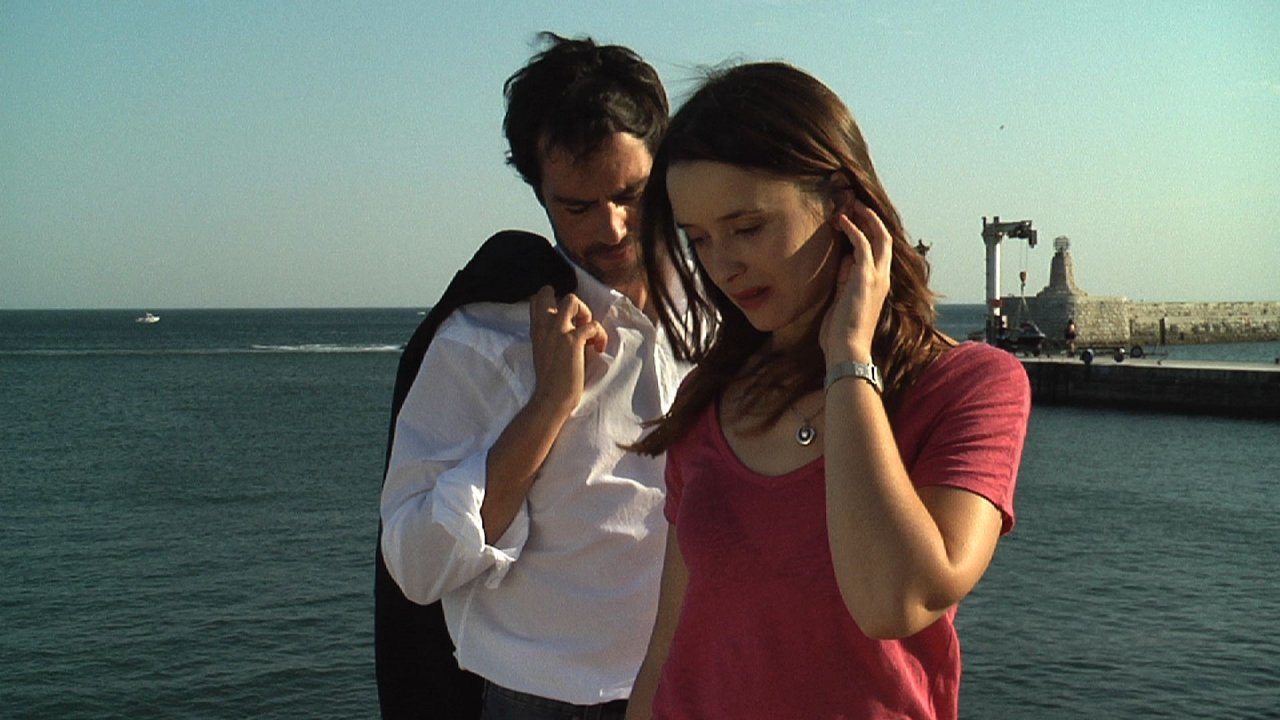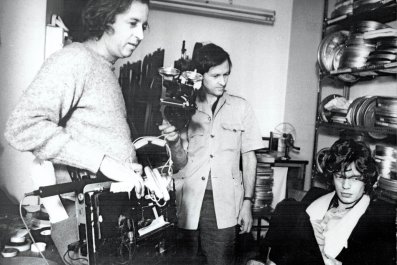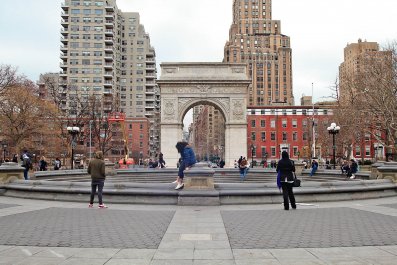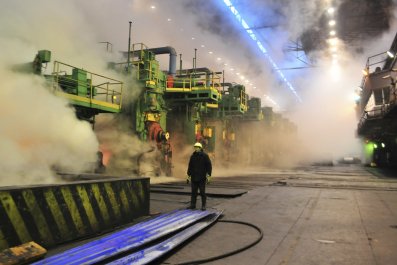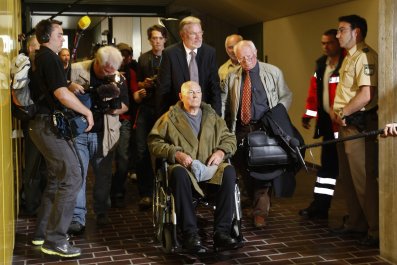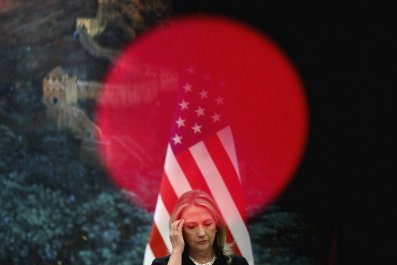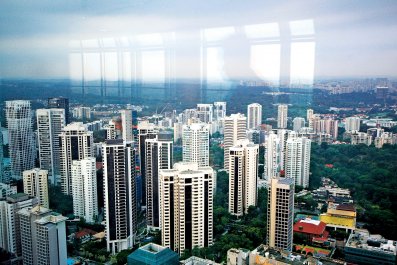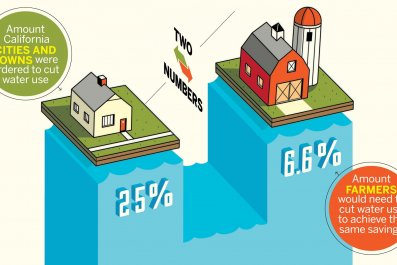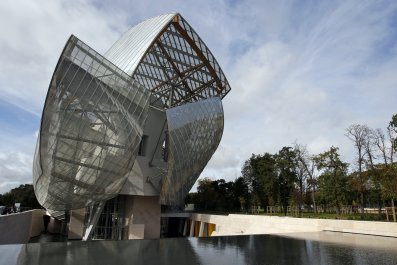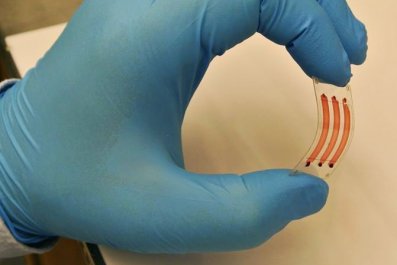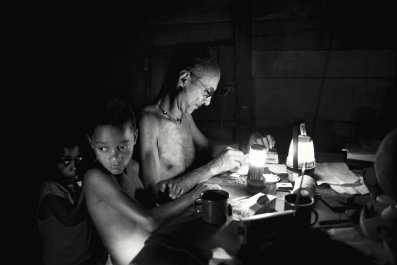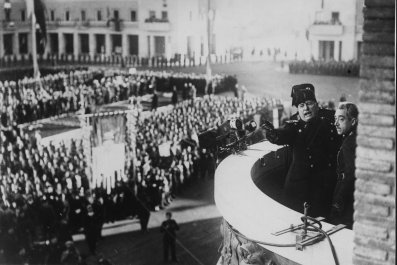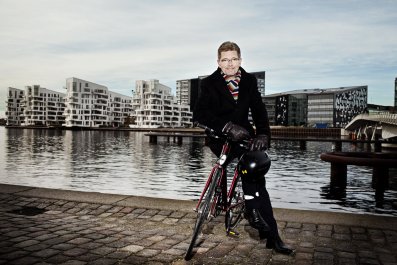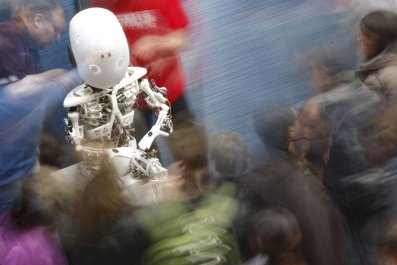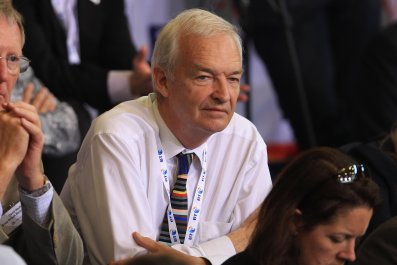In most people's minds, Portugal is a friendly, sunny place with sprawling beaches, bars that look out on to the Algarve, and a teeming capital city full of industrious people. Only some of this is true.
The country is still reeling from the eurocrisis, and so hard was the impact of the financial meltdown there that it has left an entire generation on the ropes. The protagonist of Vítor Gonçalves new film The Invisible Life, Hugo, is one of these. Seen through the eyes of this civil servant (Filipe Duarte), Portugal is a glum dystopia.
While Hugo prepares a report of Kafkaesque proportions for his superiors, everyone else in his department is being methodically fired. He chooses to ignore reality and remain passive. For most of the film, the outside world remains blocked out by drapes and shutters, just as Hugo just can't face that the world he knew has collapsed.
Gonçalves's melancholy film articulates how the crisis has affected the Portuguese, amplifying a sombre streak in the national character that also appeared in the works of the country's iconic poet, Fernando Pessoa. His books often feature clerks who toil in silence and isolation and, like Hugo, these ciphers accept constant sadness as an attribute of human existence. They long for times that have passed and loved ones who have been lost. Their state of mind is that of saudade, a profound nostalgia.
Hugo suffers not just because of the precariousness and obscurity of his way of life, but because he lived through Portugal's brief age of optimism. After a calamitous 20th century blighted by dictatorship and stagnation, the country turned a corner. It modernised and provided education for a generation of highly skilled white-collar workers like Hugo, who were to take the nation on its next step forward.
Then came 2008, and Portugal's ambitions collapsed under the collective weight of debt and one-sided austerity policies. The people who had been intended to propel the economy into the 21st century ended up unemployed or waiting tables. As the crisis deepened, many emigrated to Northern Europe or, in a twist of history, to far-flung former colonies such as Angola, Brazil and Mozambique.
In the film, it transpires that Hugo has an ex-girlfriend, Adriana (Maria João Pinho), who knows his heart. She moved away from Portugal, deciding to work as a stewardess in Holland, her ambition of becoming an architect long buried. At the same time, she is unable to let go of either the life she left behind or her former lover. When her schedule brings her to her homeland, she has fleeting encounters with Hugo, but they only lead to further disillusionment. In one scene, they almost embrace, almost kiss, but Adriana shrinks back – her life no longer matches Hugo's. She tells him: "You prefer to live with the dead, I live with the living."
The question for Hugo is whether he will turn into his superior in the civil service, a desperately lonely man, locked in a shell. The answer to this question is a ponderous 100 minutes away. Yet despite the heavy drape of saudade, The Invisible Life has memorable moments, thanks to the elegant camerawork of Leonardo Simões and a finely chiselled performance by Maria João Pinho. In a few scenes, she manages to capture some of the fleetingness and disquiet that is part not only of today's Portugal but of all human existence.



